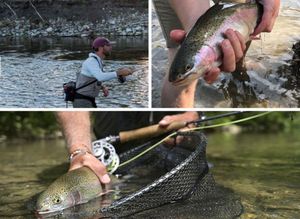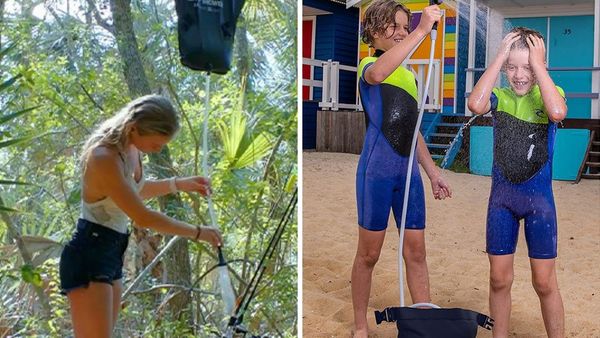If you're camping in bear country, it's important to take some precautions to avoid an encounter with one of these animals. Bears can be dangerous, and they are known to attack humans if they feel threatened. In this blog post, we will discuss some tips for avoiding a run-in with a bear while camping. By following these tips, you can help ensure that your camping trip is safe and enjoyable!
1. What to do if you see a bear while camping
Bears are one of the most dangerous animals that you can encounter while camping. If you see a bear, there are some important things to remember.
First, stay calm. If you panic, it will only make the situation worse.
Second, make yourself as small as possible. Get down on the ground and cover your head and neck with your arms.
Third, do not run. Bears can run faster than you, and they will only chase you if you try to run away.
Fourth, make noise. Yell, bang pots and pans together, or use a bear horn to scare the bear away.
Finally, if the bear does attack, fight back. Use whatever you have to hit the bear in the face and eyes. Bear attacks are rare, but they do happen.
By following these steps, you can increase your chances of survival if you find yourself face-to-face with a bear while camping.
2. How to store your food so that bears can't get to it
If you live in an area with bears, it's important to take precautions to keep your food safe from them.
The first step is to store all food in airtight containers, such as Tupperware or Ziploc bags. Bears have a keen sense of smell, so it's also important to keep food stored away from sleeping and cooking areas.
The best place to store food is in a bear-proof container, such as a bear canister or hanging food bag. These containers are designed to keep bears out by making it difficult for them to open them. Bear canisters are made of hard plastic and have a screw-on lid, while hanging food bags are made of sturdy fabric and can be suspended from a tree limb or overhead beam.
By taking these simple steps, you can help ensure that your food stays safe from bears.
3. What to do if you encounter a bear while hiking
Hiking in bear country can be an exciting and rewarding experience. However, it is important to be prepared in case you encounter a bear while on the trail. Here are some tips for what to do if you come face-to-face with a bear:
First, remain calm. Bears are usually more afraid of humans than we are of them, and if you show that you are not a threat, the bear will likely move on.
Make yourself as large as possible by standing up and waving your arms. This will help to intimidate the bear and make it think twice about attacking.
If the bear does not appear to be backing down, make loud noises by shouting or banging on a pot. This will often scare the bear away.
And finally, if all else fails and the bear does attack, fight back! Use whatever you have at hand – a stick, a rock, or even your fists – to defend yourself. Remember, your goal is to survive, so do whatever it takes!
4. How to make yourself less appealing to bears
If you're hiking or camping in bear country, it's important to take steps to make yourself less appealing to these wild animals. Bears are attracted to strong smells, so avoid using perfumes or scented lotions.
Likewise, you should avoid cooking or eating near your sleeping area. If possible, cook and eat your meals at least 100 yards away from where you're sleeping. And be sure to carefully clean up after yourself, as bears will be attracted to the smell of food.
You should also avoid sleeping directly on the ground; instead, use a camping cot or sleeping in a hammock will help to keep you off the ground and out of reach of bears.
By taking these simple precautions, you can help to ensure a safe and enjoyable trip into bear country.
5. What to do if you are attacked by a bear
If you are lucky enough to spot a bear in the wild, it is important to remember that they are wild animals and should be respected as such. Bears are generally shy creatures and will avoid contact with humans if given the opportunity.
However, there are occasions when a bear may feel threatened or territorial, and in these cases, they may attack. So, what should you do if you find yourself in the unfortunate position of being attacked by a bear?
The first thing to remember is not to panic. If you show fear, the bear will sense this and may become more aggressive. Instead, stand your ground and speak to the bear in a firm, confident voice. Try to make yourself as big as possible by raising your arms above your head or spreading your legs.
This will help the bear to recognize that you are not prey. If the bear does not back down, then you may need to use pepper spray or another type of bear deterrent. Bear attacks are rare, but if you do find yourself in this situation, following these steps will help to ensure your safety.
In conclusion, camping in bear country can be a safe and enjoyable experience if you take the necessary precautions. By being prepared and knowing what to do if you encounter a bear, you can help to ensure a safe and fun trip for everyone involved. Thanks for reading!








